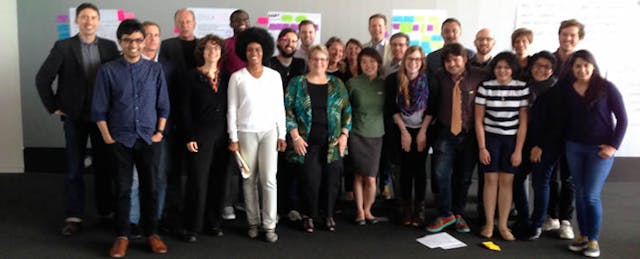The numbers don’t lie.
A cursory look at 2003 results from the Programme for International Student Assessment (PISA) place 15 year old learners in the United States below average in Mathematics (24th) and hovering around the average in Reading (12th) when compared to their OECD peers. Look ahead nine years (2012), and any substantial improvement in the scores is nowhere to be found. Average PISA scores from two years ago rank a paltry 27th in Mathematics and 17th in Reading.
These numbers are routinely presented --in a vacuum-- as evidence by any number of education reformers looking to illustrate a stagnated, if not decaying, U.S. K-12 education system. But rarely do we hear about the implications for learners beyond the formal education system.
More numbers, this time from the 2012 Programme for International Assessment of Adult Competencies (PIAAC), suggest fundamentally that what has really stagnated is U.S. attitudes toward learning at any age. As expected, average scores for adults aged 16-65 rank right around the average (13th) in literacy and just below average (19th) in numeracy skills.
And just like PISA scores, the “average” represents a skills gap of haves and have-nots, not a spectrum of diverse skill sets. A supplementary report from the OECD, Time for the U.S. to Reskill? What the Survey of Adult Skills Says, suggest that some 36 million adults are performing below PIAAC Level 2 in numeracy and literacy. For context, here’s a definition for Level 2 Literacy Skills:
…The medium of texts may be digital or printed, and texts may be comprised of continuous, non-continuous, or mixed types. Tasks in this level require respondents to make matches between the text and information, and may require paraphrase or low-level inferences. Some competing pieces of information may be present…
These 36 million adults --8 million of which have no skills (below Level 1)-- were the focus of a two-day “ideashop” hosted by the MIT Media Lab’s Learning over Education initiative, and supported by The Joyce Foundation. The event, which paired adult learning experts with members of the Media Lab brain trust, produced some 14 ideas that members of the Media Lab will refine, prototype, and test over the next 18 months.
Such unique pairings of expertise were a welcome addition to a community of innovators which tends to look beyond present issues toward future possibilities. The low-skilled highlighted in the OECD report are neither incarcerated, unemployed (some two-thirds have work), nor behind the times (one-third are under age 35). Ask MIT’s Phillip Schmidt and it seems that most have simply fallen to life’s circumstances. “We are blind to these 36M people but if we open our eyes, there is a big opportunity and responsibility to help make people’s lives better,” he says.
Here are a few teasers from the big ideas produced at the event:
100 Hours on the Bus: an outcome-focused skill-building experience tied to adult learners’ daily commutes

Smartphones ≠ Tech Literacy: a mobile-based scaffolded Q&A process for building basic computer skills

ESL Residents to Citizens: a smartpen for ELL learners to build vocabulary and context necessary to communicate meaningfully in the work environment

The aptly named “Learning over Education” initiative at the Media Lab is hoping that some of these ideas, once executed, can influence the market for adult learning opportunities. If the two-day workshop is any indication of innovations to come, new offerings may arise sooner than later. Workshop participant and Deputy Assistant Secretary of Education, Johan Uvin, captured the spirit of the event and it’s future goals perfectly: “I love when I can get out of my intellectual comfort zone, and I’ve certainly been able to do that here. When you get to that point, you can see around corners and think about problems in new ways.”


